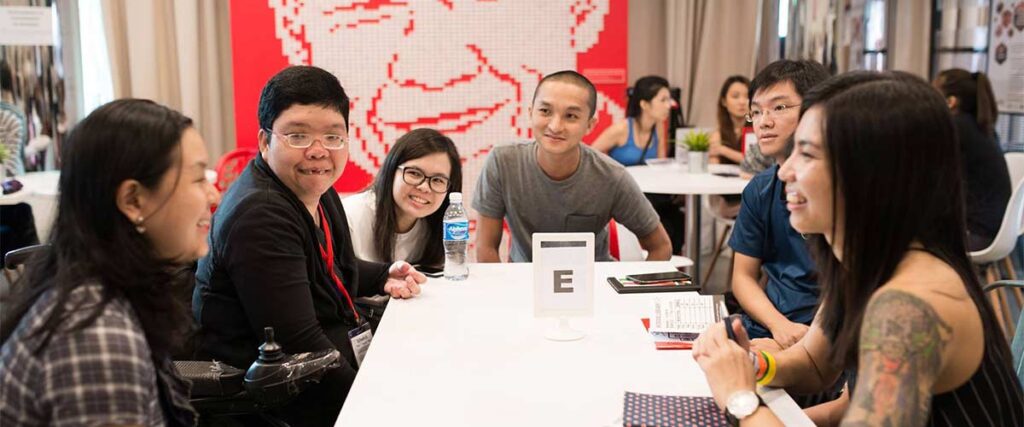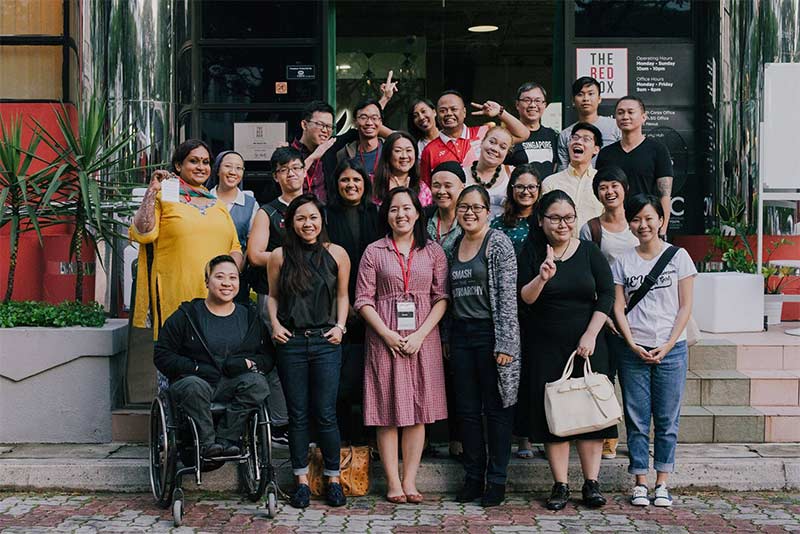Everyone has a story behind them and these individuals are speaking up to share their stories.
The greatest stories are often found in the most unexpected conversations. The Human Library, a concept birthed in Copenhagen, Denmark where books are replaced by individuals as interactive books- also known as the human book. The international organisation aims to break down social barriers by establishing a safe conversational place where people have the opportunity to listen to personal stories and share engaging conversations with human books.
However, they are not exactly your friendly bedtime stories – in fact, these are the thought provoking conversations that keep you up at night. They aim to challenge readers’ preconceptions and stereotypes about societal issues, such as infertility disorders, ex-offenders, dementia, mental health issues and more. Simply put, these are the sensitive topics that are often viewed as taboo which can lead to a lack of discussion and understanding.
We had a chance to chat with Marc, a Human Book, who is diagnosed with bipolar disorder. There are many stereotypes about people who suffer from mental illness; they’re glum or downcast, or incoherent and inarticulate, but Marc doesn’t fit into any of these stereotypes.
Having previously worked as an employee, and now an Entrepreneur, he understands the importance of business goals and firmly believes that people with mental illnesses should not be exempt from responsibility, but rather be extra devoted to their learning. Over a quick phone call, he briefly shared with his views.
How did you get involved with the Human Library?
I shared my story about being bipolar on Millennials of Singapore and my friend put me in touch with the organisers of the Human Library.
I like telling stories, and I’ve come to accept the fact that I am bipolar. It’s quite therapeutic to open up, but it’s not somewhere I’m looking for advice. It’s a place where I can talk it out and share my stories with as many people as possible.
The view of mental health in Singapore has been changing over the past years – what do you hope to see in Singapore that is still lacking?
A classic example is the OCD stereotype; where the response is often, ‘Oh you must like things in an orderly manner’. A lot of people do not understand that it’s a control and anxiety problem.
The educational resources we have are not telling people enough of the story. For example, movies or tv shows mention characters with depression or anxiety; but they just show a glimpse of what it is like living with such issues. So people are aware of such disorders but do not truly understand the stories behind these.
I’d love to see more of a collection where people with mental illnesses share their experiences – the Human Library is a good place to start.
Could you share with us the story of the business you started and how bipolar-ism affected your entrepreneurial journey?

My business partner and I recently started to sell durians. The business idea started when I met my mom’s friend and he wanted to export durian from Thailand, which is perceived to be of lower quality in Singapore. We had a tough time reaching out to wholesalers, so in the end, we decided to open up our a retail store.
Being bipolar helped in its own way; I felt like it made me a wild card, where I wanted to do things there were unexpected, and it made me think of ideas that were out of the box and more outlandish.
Our shopfront is different from traditional stalls. Most durian stall signs in Singapore are made out of the cardboard box the durians came in. We are trying to change the way durian is consumed around the world by having a great product and great service.
Do you have any advice for aspiring entrepreneurs who may be dealing with mental health issues on their own?
Starting up a business is challenging, and everyone makes mistakes along the way. These failures are learning lessons – there’s a song I heard, and the lyrics are “failing is not just for failures, it’s for everyone, failures just have more experience,” which I find it applicable.
There are a lot of small things that will upset you and they always seem bigger than they are. So keep your eyes on the end goal and focus on the big picture.
It’s important for someone with mental health issues to learn how to understand how your colleagues think and feel before telling them who you are as a person. Find out how to be part of their world and then they’ll want to be part of yours. I think it’s selfish to say that you have to accept people with mental illnesses blindly because everyone is working towards their goals.
You can’t just assume that you can tell people that you are depressed and then that excuses you from your responsibilities. If anything, it doesn’t give you an excuse to slack off, but rather you need to learn how to work extra hard.
Additional Details
This upcoming third session of Human Library is held on Sunday, 27th August at Taman Jurong Community Club.
Realted Articles
The 9 Best Books to Read in 2020





